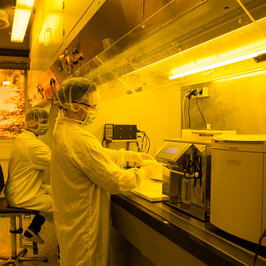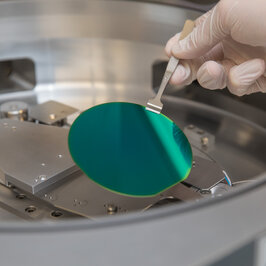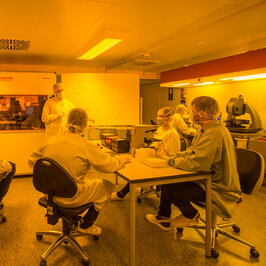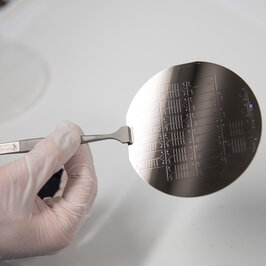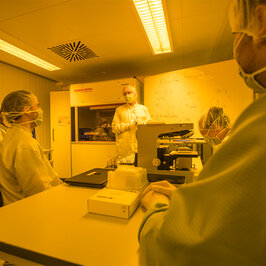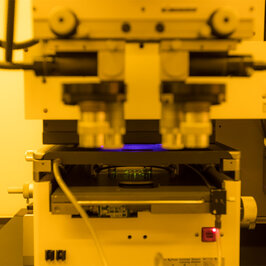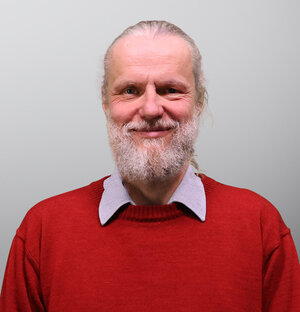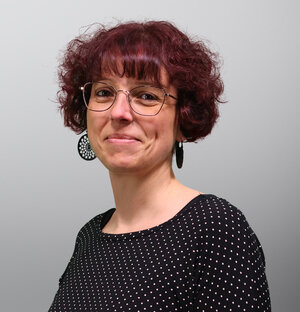Smart interaction
With this master's degree progamme, we specialise in smart devices, i.e. devices that can make "their own" decisions. It deals with the sensor values with which such systems work and, of course, with safety aspects, reliability, miniaturisation, energy consumption and intelligent data processing. We'll show you how to look at systems as a whole and help shape the development that will enable systems to decide on their own maintenance times in the future, or intelligent implants to be used in medical technology, or cars to react intelligently to sensor data...
- ECTS: 90 ECTS
- Programme duration: 3 semesters
- Campus: Furtwangen
- Faculty: Faculty II: Engineering & Technology
- Programme begins: winter semester (October)
- Application deadline: 15 July (winter semester), 15 January (summer semester); students from non-EU countries: 15 May (winter semester)
- Entry requirements: university degree, proof of language proficiency, English: min. CEF B1, TOEFL IBT 90, IELTS 6.5, German: min. CEF A1
- Teaching language: English
- Accreditation: yes
- Don't just watch, join in We work closely with companies' research and development departments. So you can not only foresee and consider the smart future, you can also help shape it yourself. And get a job straight away.
- International and high-end Smart developments don't just take place in Germany of course, but also worldwide - which is why we give you specialist know-how with a strong international focus. We have labs (clean rooms) available for practical application.
- Various disciplines For successful smart systems, we teach you how to manage the complex interplay of areas such as control engineering, simulation, microelectronics, microsystems technology, sensors and actuators, optoelectronics and coding.
- What's it all for? Smart systems are used in industrial sectors such as automotive, automation, communication, microsystems technology, ... - in fact just about everywhere - which means the best possible career opportunities for you in a wide range of sectors!
By activating external video from YouTube, you consent to transmitting data to this third party. Internal link opens in the same window:More info
Take a look at our Smart Systems video!
Smart systems are - usually miniaturised - systems that communicate with their environment via sensors and actuators. They offer highly developed functionalities in the form of signal processing, data analysis, (wireless) communication, control and/or decision-making. Ideally, smart systems work largely autonomously, which requires a wireless power supply or energy harvesting solutions.
Microsystems represent an important subclass of smart systems. They are characterised by the realisation of systems and components in the micrometer range. These can be produced cost-effectively in large quantities.
Successful graduates of the Master's of Smart Systems (SMA) thus acquire a master's degree in a modern and increasingly important field of technology.
Modules and focuses
The programme is divided into modules, five of which are in the first and second semesters. The third semester is a dedicated thesis semester. The two semesters of study lead to the overall qualification goal in specialist modules. Each semester also includes an elective module, which allows you to choose your own area of specialisation. We offer you a catalogue of courses to choose from!
Who does our programme suit
We have designed our "SMA" master's for graduates of courses such as electrical engineering / electronics, computer engineering, microsystems technology and mechanics-oriented courses. However, it is also open to foreign students who have at least a bachelor's degree.
Half of the courses on the master's programme are taught in English. After two successful semesters of study and a thesis semester, you will be awarded the internationally recognised degree of Master of Science in Smart Systems.
In view of the rapidly advancing globalisation of all economic sectors, this qualification opens up far-reaching career opportunities for you!
Qualified for best opportunities and goals
Smart Systems can be found in industrial fields such as automotive, automation, communication, microsystems technology and the manufacture of everyday objects.
Our graduates' professional fields are high-value activities such as innovation, research and development tasks in all these areas as well as related fields in industrial companies and public research institutions, e.g. as development engineers, system designers or consultants.
Our cooperative doctoral programme, "Generating Mechanisms of Microstructures", run in collaboration with the University of Freiburg, offers you the possibility of a subsequent doctorate.
Faculty II: Engineering & Technology
With us, you’ll immerse yourself in a world where ideas become groundbreaking technologies! As part of our renowned engineering forge, the degree programmes in this field will prepare you for a career in which you’ll not only develop machines and technologies, but also help shape the future of medicine and industry. From mechanical engineering to medical engineering and industrial technologies – with us you’ll learn how engineering knowledge is used in practical, often life-changing, applications.
Internal link opens in the same window:More about the Faculty II
As one of the strongest research universities in the country, HFU is also very active in the field of medical technology and micromedical technology.
Click here to see the Internal link opens in the same window:current research projects in this key area.

